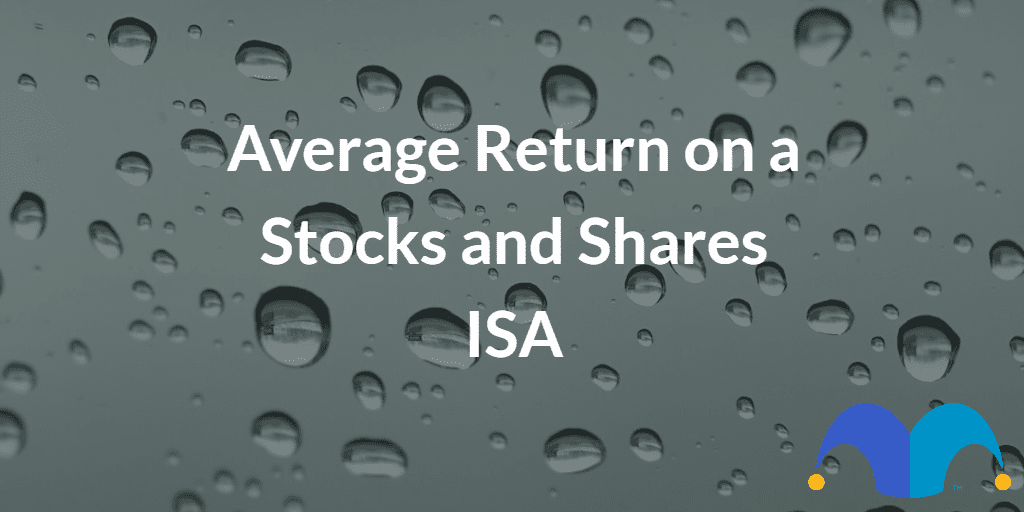What is a Stocks and Shares ISA?
Simply put, a Stocks and Shares ISA an investment account with some powerful tax benefits and enables individuals to buy a wide variety of securities. These include individual stocks and shares, unit trusts, investment trusts, investment funds, and corporate or government bonds. It’s also sometimes referred to as an investment ISA.
Typically, when investing in the stock market using a general investment account, any returns from share price appreciation are subject to capital gains tax, while earnings from dividends are subject to income tax. However, by investing with a Stocks and Shares ISA, all profits and earnings are tax-free.
Currently, you can save up to £20,000 each tax year in an ISA. This is known as the ISA allowance. The annual ISA allowance can be shared around different types of ISAs, but not two of the same type.
What is the average return on a Stocks and Shares ISA?
The performance of any investment will depend on your investment strategy and the exact investments you hold.
The most recent data available — for the tax year 2023/24 — showed the average Stocks and Shares ISA returned 2.80%.1
However, the previous year – when the stock market was ravaged by a severe correction – the average returns were far worse at -3.27%. In other words, investors lost money. And the situation was even more dire in the 2019/2020 tax year where Covid-19 caused stock market around the world to crash. Yet, the following year enjoyed a rapid rebound resulting in significantly higher returns.
| TAX YEAR | AVERAGE STOCKS AND SHARES ISA RETURNS | AVERAGE CASH ISA RETURNS |
| 2023/2024 | 2.80% | 3.73% |
| 2022/2023 | -3.27% | 1.71% |
| 2021/2022 | 6.92% | 0.51% |
| 2020/2021 | 13.55% | 0.63% |
| 2019/2020 | -13.33% | 1.18% |
| 2018/2019 | 4.04% | ~1.1% |
Generally speaking, Stocks and Shares ISAs have historically performed well. Their average annual rate of return over the past 10 years is 9.64%.3
Are Stock and Shares ISAs worth it?
It’s hard to say whether a Stocks and Shares ISA is worth it for everyone. Money put into this kind of account is invested, whether that be into individual stocks or in a diversified investment fund. And as with all investing, there is the risk of getting back less than you put in.
However, an investment ISA offers the possibility of higher returns on your money. This is especially true if you take a long-term approach.
Good for long-term, cost-conscious investors who want lots of flexibility
Interactive Investor Stocks and Shares ISA *
| Trading Commission | From £3.99‡ |
| Account Management Fee | From £4.99† |
- Pros & Cons
- Fees & Charges
Pros
- Very cheap trading costs
- Flat-rate platform fee structure
- Inclusive free trades with some plans
Cons
- No dealing fee discount for frequent trading
- Some plans can be expensive for smaller portfolios
- Limited trading tools
Interactive Investor offers three different subscription plans – these are easy to switch between at a later date, should circumstances change.
Investor Essentials plan
Platform Fees:†
Monthly subscription fee: £4.99
Equities custody charge: covered by subscription fee
Fund management charge: covered by subscription fee
Note: the ‘Investor Essentials’ plan has a £50,000 investment limit; if this is exceeded the account will automatically be upgraded to the ‘Investor’ plan.
Dealing Fees‡:
UK shares & ETFs: £3.99
US shares: £3.99
Other international shares: £9.99
UK fund trades: £3.99
Investor plan
Platform Fees:†
Monthly subscription fee: £11.99
Equities custody charge: covered by subscription fee
Fund management charge: covered by subscription fee
Dealing Fees‡:
A monthly dealing credit, worth £3.99, is included as part of the account subscription and is valid for 31 days. (Equivalent to 1 free trade per month).
Additional trades are charged as follows:
UK shares & ETFs: £3.99
US shares: £3.99
Other international shares: £9.99
UK fund trades: £3.99
Super Investor plan
Platform Fees:†
Monthly subscription fee: £19.99
Equities custody charge: covered by subscription fee
Fund management charge: covered by subscription fee
Dealing Fees‡:
A monthly dealing credit, worth £7.98, is included as part of the account subscription and is valid for 31 days. (Equivalent to 2 free trades per month).
Additional trades are charged as follows:
UK shares & ETFs: £3.99
US shares: £3.99
Other international shares: £5.99
Fund trades: £3.99
Applicable to all plans
Regular investing service: free to use (£25 minimum investment amount, no dealing fees)
Spot + FX fees: 1.5%
Telephone dealing charge: £49
Note: For UK and US trades over £100,000, and other International share trades over £25,000 additional fees and charges apply. (See the Interactive Investor website for full details.)
What risks should you be aware of?
As with all investing, there are risks involved in having a Stocks and Shares ISA.
Stock markets may go up and down in the short term, but over the long term, they traditionally have an upward bias. If you are patient, you will likely see a positive return.
That said, if you know you will need your cash in the short term, say the next two to three years, then a Cash ISA might be the better option.
It’s important to note that you don’t necessarily have to choose between a Cash ISA and a Stocks and Shares ISA. You can have both — you just can’t deposit more than £20,000 across both of the ISAs in a single tax year.
Can a Stocks and Shares ISA lose money?
Yes. As previously highlighted in the average returns table for Stocks and Shares ISAs, investment portfolios don’t always go up.
Volatile stock market conditions can impede the wealth building process when relying on index funds. However, for investors picking stocks directly, the risks increase significantly. A poorly constructed portfolio of mediocre businesses can easily destroy wealth instead of create it.
It’s up to investors to research and make informed decisions to ensure they improve their financial prospects in the long run.
Which provider should you choose for the biggest returns?
There is no one ‘best’ ISA provider. Every investment platform has its advantages and disadvantages, which will be suitable depending on the unique personal circumstances of the individual.
You can also change your mind and transfer your ISA at any time without losing your benefits.
When choosing a Stocks and Shares ISA, consider factors such as:
- Fees
- Selection of investments available
- Availability of research tools
- Customer service
Keep in mind that the best Stocks and Shares ISA is one that you can afford and that comes with features that align with your goals, preferences, and investing strategy. To help you make a good choice, take a look at our list of featured Stocks and Shares ISAs in the UK.
Finally, remember that past returns are not a guarantee of future results. Given the risk involved with investing in general, make sure you do your research before you part with your cash and seek independent financial advice if you need it.
Good for long-term, cost-conscious investors who want lots of flexibility
Interactive Investor Stocks and Shares ISA *
| Trading Commission | From £3.99‡ |
| Account Management Fee | From £4.99† |
- Pros & Cons
- Fees & Charges
Pros
- Very cheap trading costs
- Flat-rate platform fee structure
- Inclusive free trades with some plans
Cons
- No dealing fee discount for frequent trading
- Some plans can be expensive for smaller portfolios
- Limited trading tools
Interactive Investor offers three different subscription plans – these are easy to switch between at a later date, should circumstances change.
Investor Essentials plan
Platform Fees:†
Monthly subscription fee: £4.99
Equities custody charge: covered by subscription fee
Fund management charge: covered by subscription fee
Note: the ‘Investor Essentials’ plan has a £50,000 investment limit; if this is exceeded the account will automatically be upgraded to the ‘Investor’ plan.
Dealing Fees‡:
UK shares & ETFs: £3.99
US shares: £3.99
Other international shares: £9.99
UK fund trades: £3.99
Investor plan
Platform Fees:†
Monthly subscription fee: £11.99
Equities custody charge: covered by subscription fee
Fund management charge: covered by subscription fee
Dealing Fees‡:
A monthly dealing credit, worth £3.99, is included as part of the account subscription and is valid for 31 days. (Equivalent to 1 free trade per month).
Additional trades are charged as follows:
UK shares & ETFs: £3.99
US shares: £3.99
Other international shares: £9.99
UK fund trades: £3.99
Super Investor plan
Platform Fees:†
Monthly subscription fee: £19.99
Equities custody charge: covered by subscription fee
Fund management charge: covered by subscription fee
Dealing Fees‡:
A monthly dealing credit, worth £7.98, is included as part of the account subscription and is valid for 31 days. (Equivalent to 2 free trades per month).
Additional trades are charged as follows:
UK shares & ETFs: £3.99
US shares: £3.99
Other international shares: £5.99
Fund trades: £3.99
Applicable to all plans
Regular investing service: free to use (£25 minimum investment amount, no dealing fees)
Spot + FX fees: 1.5%
Telephone dealing charge: £49
Note: For UK and US trades over £100,000, and other International share trades over £25,000 additional fees and charges apply. (See the Interactive Investor website for full details.)
Please note that tax treatment depends on the individual circumstances of each client and may be subject to change in future. The content in this article is provided for information purposes only. It is not intended to be, neither does it constitute, any form of tax advice. Readers are responsible for carrying out their own due diligence and for obtaining professional advice before making any investment decisions.

